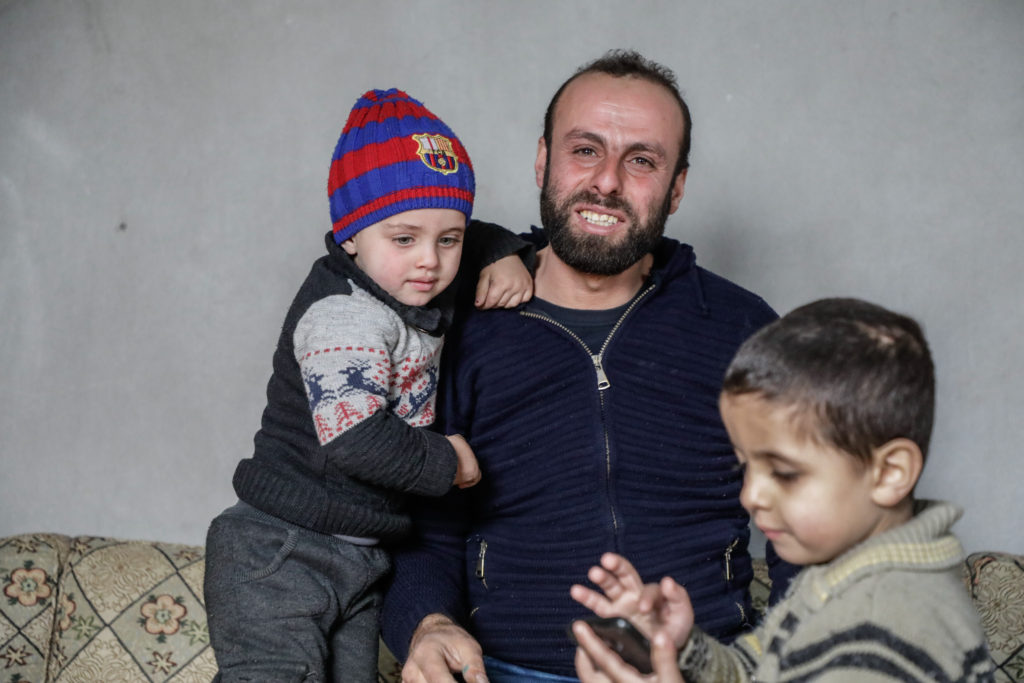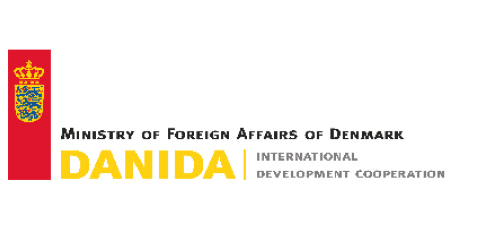Khalil (name changed), 32, did not think he would ever live in a country where a third of the people go to bed without food, and where he constantly worries about where the next meal for his four children would come from. Before the war started, Khalil, and his family lived in a beautiful house in one of Syria’s biggest cities. As a lawyer, he earned a good income and was proud to be able to provide for his family with everything they needed and more.
When their house was hit during an airstrike, Khalil and his family had to leave everything behind and flee to the little village he originally grew up in. Khalil, his wife and four children now share a few small rooms with five other family members, including his parents, sister and her two children. “I felt like I suddenly became someone without a future; in just a few seconds the life we had was forever gone. I studied and worked so hard, and then, in a blink of a moment, everything gets destroyed in front of your eyes. I am still having trouble accepting that everything’s just gone, my work, my accomplishments, my house. Leaving our home was not just about leaving our belongings, I felt like we had to say goodbye to our memories.”
According to OCHA, a total of 11.1 million people are in need of humanitarian assistance in Syria. Like more than 6 million Syrians, Khalil and his family remain displaced within their own country. He and his family had to start from scratch again, getting used to their new environment, finding a job, and finding new friends. “City and village life are very different. It took us a while to connect and interact with people again.”
Khalil could no longer work as a lawyer, but took on different jobs in construction, the community council and in vaccination campaigns. “I say yes to anything and everything I can find. What else can I do when my family needs me?” He learnt about SRC’s school rehabilitation project through posters in the streets. Since 2016, the SRC has supported approximately 1.3 million people with small scale infrastructure rehabilitation and refurbishments. More than half of Syria’s infrastructure has been destroyed since the beginning of the war, including schools and hospitals.
When Khalil applied, he was asked what part of the refurbishing process he was most interested in. “I told them that I would really love to paint the walls. It was such a good, new experience, and it felt great to learn something new. I know now how to use the different colors, mix them together, and the different steps of painting the walls. I enjoyed meeting engineers and other men I worked with, and building new connections.” During the three-month project, he was paid 120 USD every month. With the income, he was able to support his family. In total, more than 150 men were part of this project, helping rehabilitate schools which had been damaged and partially destroyed. Some walls were falling apart, bathrooms were not working, and it was dangerous to use the classrooms.
With SRC school rehabilitation project, the school opened its doors again to 500 elementary school children. “Parents are no longer afraid to let their children go to school, we even built wider corridors to make it easier for children with disabilities to access the facilities. The walls are now covered with educational drawings. I cannot describe the feeling of seeing the happiness in both the eyes of children and their parents.” Khalil’s own children are still too young to attend the school but hearing his neighbor’s children chat and laugh as they finally go back to school fills him with deep happiness and pride. “Everyone I know has their own story of struggle and suffering. We live as refugees within our own country and go to bed with an empty belly. We all pray that our children will be able to have a better life; that they won’t have to endure what we have experienced. I really want the world to know that we are not numbers and statistics. That every time they hear on the news that people have been killed, these are fathers, mothers and children like themselves.”






